Human rights by design: future-proofing human rights protection in the era of AI
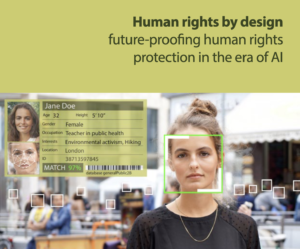
A follow-up to Unboxing Artificial Intelligence: 10 steps to protect human rights (below), Human rights by design: future-proofing human rights protection in the era of AI, highlights three interdependent trends that constitute obstacles to the full implementation of international human rights standards related to AI in Europe. Nani assisted the Commissioner’s office in preparing the Recommendation.
Intersectional Rewrites: European Court of Human Rights Judgments Reimagined
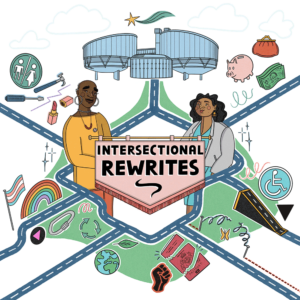
The independent book project Intersectional Rewrites: European Court of Human Rights Judgments Reimagined imagines a jurisprudence that rises to the challenge of responding to these intersecting forms of oppression, discrimination, and other human rights harms. This volume will gather 15 recent judgments from the Court, rewritten by activists, practitioners, and academics based on the key learnings of intersectionality theory and praxis.
Unboxing Artificial Intelligence: 10 steps to protect human rights

The impact of Artificial Intelligence (AI) on human rights involves opportunities as well as risks; human rights should be strengthened by AI, not undermined. The Commissioner for Human Rights of the Council of Europe issued a Recommendation on AI and human rights providing guidance on how the negative impact of AI systems on human rights can be prevented or mitigated, focusing on 10 key areas of action. Nani assisted the Commissioner’s office in preparing the Recommendation.
Catalysts for Collaboration

The Catalysts for Collaboration website presents a set of best practices and case studies to encourage digital rights activists to take a more collaborative approach and include strategic litigation in their campaigns. The project was developed by Nani during her time as a 2016-2017 fellow at the Berkman Klein Center for Internet & Society at Harvard University. The project’s website was updated in 2020 with three new language versions, a new design, and additional case studies.
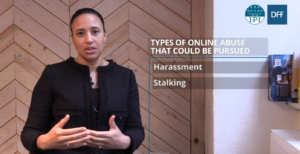
The video series Legal remedies to address online harassment on the International Press Institute’s Newsroom Ontheline platform highlights legal remedies to fight online harassment. With the content co-developed by Nani, the videos address not only the types of laws that may be used to defend targets of online harassment, but also the pitfalls and unintended consequences that legal action itself can entail.
Manual on Freedom of Expression Law for South Sudan

In 2016, Nani conducted a training on freedom of expression for human rights lawyers in Juba, South Sudan on behalf of Albany Associates and Internews. She subsequently produced a training manual for lawyers in the country, describing international norms, principles and jurisprudence on the right to freedom of expression. The manual both serves as a reference resource for lawyers undertaking media defence work, and as a source for those wanting to deliver trainings.
European Journalism in the Digital Age
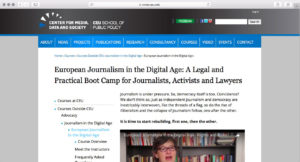
European Journalism in the Digital Age (EJDA) is a unique training programme of the CEU’s Center for Media, Data, and Society designed to give journalists, activists, lawyers, and others involved in public interest publishing the tools they need to understand the challenges of journalism in the digital context. Nani is one of the instructors of this course and co-developed the course content.
SMEX Arab Digital Rights Dataset
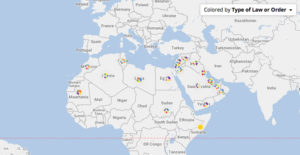
SMEX’ Arab Digital Rights Dataset highlighted trends in how Arab governments regulate digital rights. The dataset mapped legislation, caselaw, and other legal instruments that impact on the enjoyment of human rights in online and networked spaces and seeks to empower activists, journalists, civil society, human rights defenders, lawyers, judges, and others to hold all governments accountable. In 2016-2017, Nani acted as legal adviser to the development of a revised and comprehensive dataset, which includes the co-development of a data collection methodology that can be used for mapping digital rights around the world. The Dataset was later incorporated into the CYRILLA database, a joint project by SMEX and HURIDOCS.